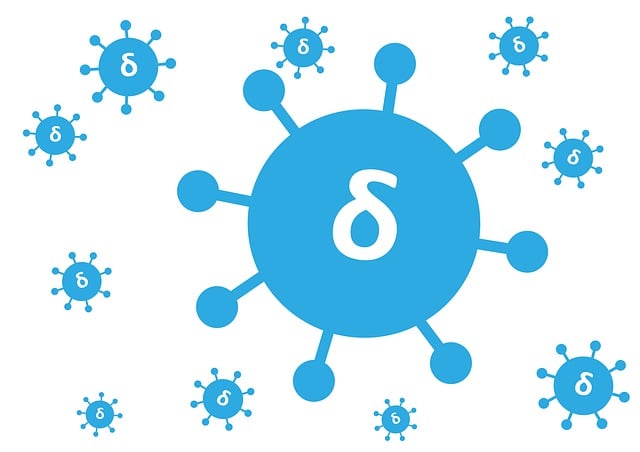Delta-9 THC vs CBD: Unlocking the Right Option for You

Delta-9 THC and CBD are contrasting compounds found in cannabis, each offering unique effects and applications. Delta-9, responsible for the 'high', interacts with the brain's cannabinoid receptors, leading to euphoria and altered perception but potentially impairing cognitive function. In contrast, non-psychoactive CBD regulates the endocannabinoid system, providing therapeutic benefits such as reduced anxiety, improved sleep, and chronic pain relief without intoxicating effects. While Delta-9 is suited for recreational use, CBD is favored for its legal availability and therapeutic applications in stress relief and managing specific medical conditions.
“Unraveling the debate between Delta-9 THC and CBD, this comprehensive guide aims to demystify these cannabis compounds. Delta-9 THC, known for its psychoactive effects, has gained popularity for its recreational uses. On the other hand, CBD, a non-psychoactive alternative, offers therapeutic benefits without the ‘high’.
This article explores the unique properties of each compound, delving into their effects, usage, and considerations for consumers seeking relief or relaxation. By understanding Delta-9 THC and CBD’s distinct characteristics, you’ll make an informed choice.”
- Understanding Delta-9 THC: The Active Ingredient in Cannabis
- CBD (Cannabidiol): A Non-Psychoactive Alternative
- Key Differences Between Delta-9 and CBD
- Choosing Between Delta-9 and CBD: Considerations for Users
Understanding Delta-9 THC: The Active Ingredient in Cannabis

Delta-9 THC, or tetrahydrocannabinol, is the primary psychoactive compound found in cannabis plants. Often referred to simply as “THC,” it’s what gives users that signature “high” feeling associated with marijuana. When consumed, delta-9 THC interacts with our body’s endocannabinoid system (ECS), which plays a role in regulating mood, memory, appetite, and pain perception. This interaction can lead to various effects, from relaxation and euphoria to increased heart rate and heightened senses.
Understanding delta-9 THC is crucial when navigating the cannabis landscape. While it’s known for its intoxicating properties, it also offers potential therapeutic benefits. Different strains of cannabis contain varying levels of delta-9 THC, allowing users to choose products that align with their desired effects, whether they’re seeking relaxation, pain relief, or cognitive enhancement. However, due to its psychoactive nature, delta-9 THC may not be suitable for everyone, especially those with certain medical conditions or those who prefer to avoid any mind-altering substances.
CBD (Cannabidiol): A Non-Psychoactive Alternative

CBD (Cannabidiol) is a non-psychoactive compound derived from the cannabis plant, offering an appealing alternative to Delta-9 THC for those seeking its potential therapeutic benefits without the mind-altering effects. Unlike Delta-9, CBD doesn’t bind directly to the brain’s cannabinoid receptors, which are responsible for getting you high or altering your perception of reality.
Instead, CBD interacts with the endocannabinoid system, a complex network within the body that helps regulate mood, memory, pain, and inflammation. This interaction can produce various positive effects, including reduced anxiety, improved sleep quality, and relief from chronic pain, making it a popular choice for individuals looking to enhance their well-being without resorting to Delta-9 cannabis products.
Key Differences Between Delta-9 and CBD

Delta-9 THC and CBD are both compounds found in cannabis, but they have distinct characteristics and effects on the body. One key difference lies in their psychoactive properties; Delta-9 is known for its intoxicating and mind-altering effects, often leading to feelings of euphoria and altered perception. In contrast, CBD (Cannabidiol) does not produce these effects, making it a popular choice for those seeking relaxation without the high.
Another significant distinction is their legal status and medical applications. Delta-9 THC remains a controlled substance in many countries due to its potential for abuse and addiction. On the other hand, CBD has gained popularity as a legal and non-intoxicating option, with various products available over the counter. While both compounds have shown promise in treating certain conditions, their unique profiles make them suitable for different uses; Delta-9 may be preferred for recreational purposes, while CBD is often sought after for its therapeutic benefits without psychological effects.
Choosing Between Delta-9 and CBD: Considerations for Users

When considering Delta-9 versus CBD, users should approach their decision with a keen understanding of each compound’s unique properties and effects. Delta-9 THC, the primary psychoactive compound in cannabis, is known for its euphoric and relaxing sensations, offering potential relief from stress and anxiety. However, it may not be suitable for everyone, especially those seeking to avoid impairment or have medical conditions that require clear cognition.
CBD, on the other hand, does not produce a ‘high’ but rather offers a range of therapeutic benefits. It is non-psychoactive, making it legal in many places, and is renowned for its anti-inflammatory, anxiolytic, and potential neuroprotective properties. Users looking for relief from chronic pain, inflammation, or specific medical conditions might prefer CBD. The choice ultimately depends on individual needs and preferences, with both options presenting distinct advantages in the realm of wellness and recreational use.
When deciding between Delta-9 THC and CBD, understanding their distinct properties is key. While Delta-9 offers a familiar high, CBD provides a calm, clear-minded experience without any psychoactivity. The choice depends on your preferences and desired effects, whether seeking relaxation or an energizing boost. By weighing the differences outlined in this article, you can make an informed decision to choose the right cannabinoid for your needs. Remember, both have their merits, and exploring these options can lead to a more personalized and enjoyable experience.


















